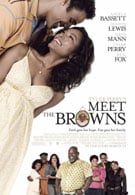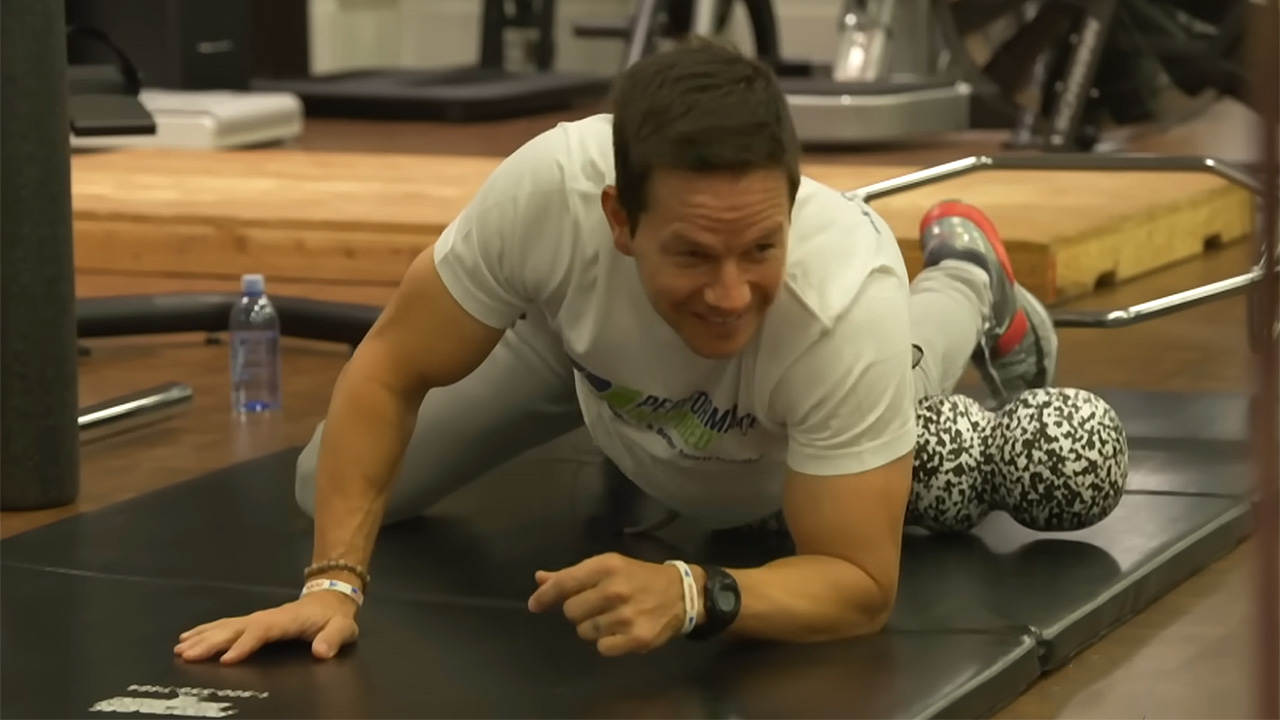It feels pretty futile to be reviewing a Tyler Perry movie. Bad reviews have never stopped his movies from being giant box office hits, and given that the African-American community has made Perry such a success, it’s fair for anyone to assume that, if I critique it, it’s just because white people don’t get it.
So I go forward with a review not just because I have to, but because Meet the Browns, Perry’s latest film, has actually left me with something to say. Not knowing what to expect with my first Perry movie, I walked out as surprised by my own emotional involvement as I was frustrated by the way the movie undermined its own good intentions. Meet the Browns is one part melodrama, one part conventional romance and one big heaping of play-it-to-the-rafters comedy. The parts all mix together fairly well, and the main story of redemption and second chances is successful, but the movie as a whole feels like a jumble. It’s as is Perry, who wrote and directed, picked from a list of possible dramatic moments and threw them in his script without regard to narrative buildup or logic.
We begin with Brenda (Angela Bassett) as she learns that the factory where she works has shut down. She’s already struggling to make ends meet, with her high school-aged son Michael (Lance Gross) helping her raise her two young daughters and no child support from the lout who fathered Michael (Philip van Lear). She gets a letter in the mail that tells her her father, whom she never met, has died at home in Georgia. Her friend Cheryl (Sofia Vergara, with a slathered-on Mexican accent that would put Speedy Gonzalez to shame) encourages her to go, and soon Brenda finds herself with her three kids in the heart of Nowheresville, Georgia.
Turns out her family down there is the kooky Brown clan, including the flamboyant and silly Leeroy (David Mann), the screechy loudmouth Vera (Jenifer Lewis), and the more kindly Cora, L.B. and Sarah (Tamela Mann, Margaret Avery and Frankie Faison, respectively). Thrown into the mix is Harry (Rick Fox), a neighbor who is also a professional basketball recruiter, and has his eye on Michael’s skills on the court.
Harry, of course, is the kind of man Brenda has needed all her life, and the Browns are the kind of crazy-but-gentle family that so many Southern-fried dramas assume we all need. The end is clearly in the sight from the moment Brenda arrives in Georgia, but given that this is a melodrama, all sorts of complications need to get in the way first. That’s fine, but the bizarre thing is the order in which they come. When Brenda returns to Chicago after the funeral and Harry is there to coach Michael, we assume it’s only a matter of time before she comes to her senses and runs back to Georgia. No, the movie still has another 45 minutes to go. And when Brenda does make it to Georgia, living in a beautiful home, we assume it’s high time she and Harry kiss and get on with it. Oh, but Perry has plenty more tears and hugs to throw our way.
He also makes sure to shoehorn in his signature character, Madea, who is involved in a car chase that has absolutely nothing to do with the main story. Given that one of Perry’s upcoming projects is called Madea Goes to Jail, I imagine it’s set-up for the next franchise. But it’s clear that Madea is what the audience wants and Perry will give it to them, even if it means grinding the movie to a halt.
That’s kind of the problem with the whole thing—Perry makes plenty of room for sermonizing, broad humor and obviously telegraphed moments of drama, meaning every scene is too long and too awkward for its own good. The actors do OK with the over-scripted dialogue, Bassett especially, but the whole thing feels stagy in a way that reveals Meet the Browns’ roots as a play.
Your Daily Blend of Entertainment News
But, again, not that it matters. And if everyone is going to be out there seeing a Tyler Perry movie this weekend, I don’t mind that they’re seeing this one-- Meet the Browns has genuine laughs, well-meaning lessons and a story that holds together pretty well. But it’s nothing special, and you’d hope that, for something that’s part of a veritable cultural phenomenon, it’d be a little more than just OK.
Staff Writer at CinemaBlend


